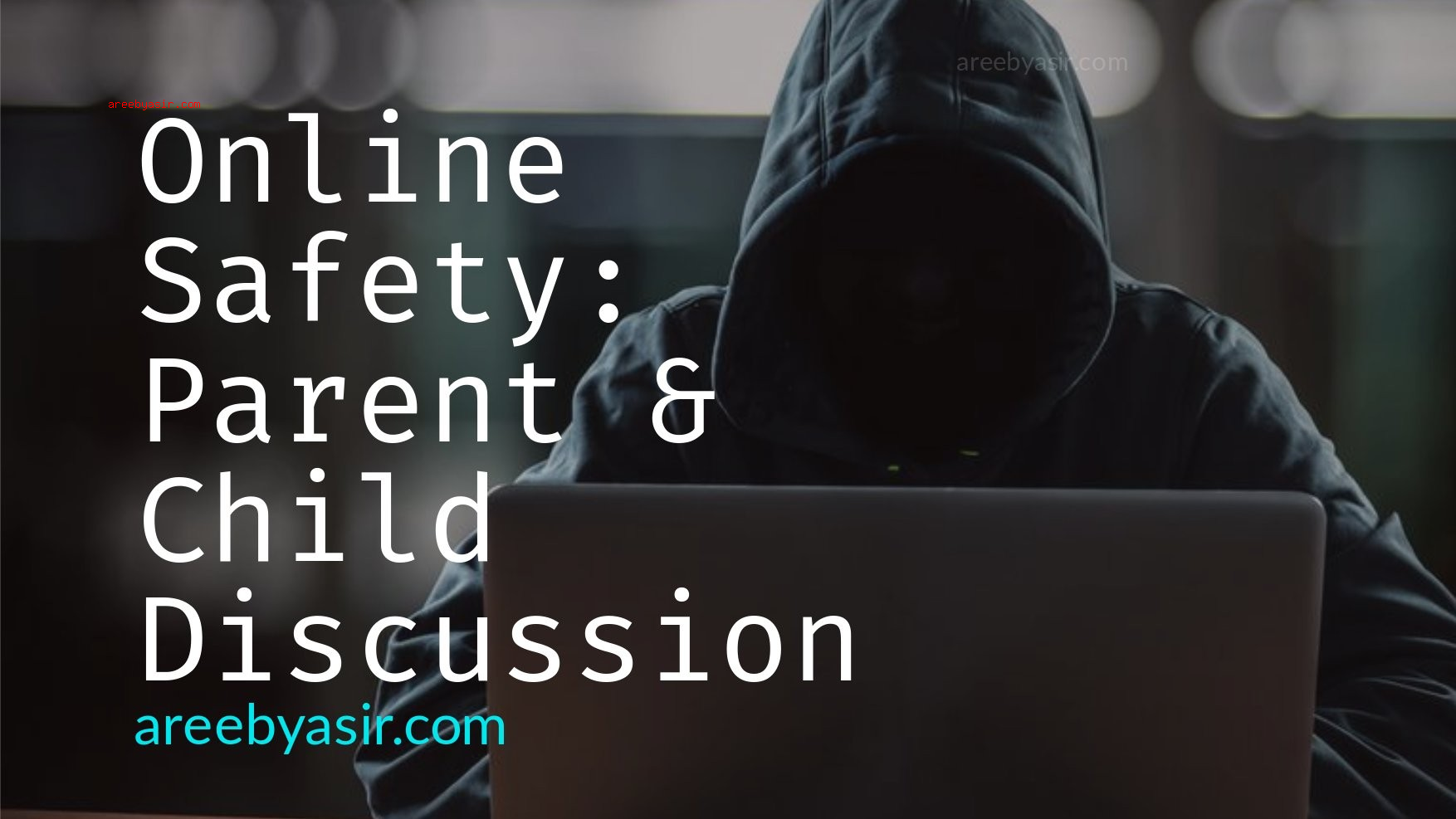Online Safety For Your Kids

The single most important thing to do is to keep your kids safe. But with the world becoming more social and more open, it’s getting harder for parents to navigate how to keep our kids safe but at the same time allow them to use the internet as a tool for learning.
Click the below to download and print the guide to online safety and discuss with your child.
1. Social Media Safety Guide
It seems like everything is tracking everything, is there a point of trying to be secure and safe? Yes, there is. Predators watch for children who aren’t practicing any level of online safety and single them out on purpose. Just like online hackers and fraudsters watch for adults who aren’t using any level of online safety (like having your pets name as your online banking password).
But what can you do to help your children be safe online? How can you make them understand online safety when it seems like their friends and even school don’t seem to understand it?
There are few things to keep in mind here.
1. You can’t stop them from going on the computer or using the internet.
- The Internet and learning to use the computer are essential skills that should be learned.
- Getting them to understand ‘safety’ online is key. Teaching them to be secure now will create good secure habits later when they are teenagers and adults.
- Talking about what the internet is used for, like searching for information or watching a favorite show (art programs, drawing or learning something etc etc) will get them in the habit of seeking knowledge on the net rather then using it frivolously or aimlessly. My daughter loves to play games on the tablet but doesn’t watch programs on it. Healthy internet habits carry over, so secure those habits now.
Talk to your child’s school about the scope of the computer class. If they are in elementary school- there should be no reason for them to have a social media account or even an email account. Remember that computers should be used a learning tool not a aimless box they go to for fun.
Your child or teenagers school shouldn’t require them to have a private email address or for you to have a social media account. If it does, discuss with your school about creating a email address from the school’s account where all emails will be accountable. For example, Prospect High School should have their own email account and can create “StudentLindsayTaylor@ProspectHigh.com. This way the school’s administration will be held accountable and the student is also safe and will be limited to school related interaction with friends and teachers.
Online safety has become a hot topic these days. With more and more teenagers falling victim to cyber bullying, harmful social media practices, and not understanding how the internet is “FOREVER” and how it impacts their mental health and physical safety.
Helping them to understand how different social media track them, and how easy it is for hackers/pedophiles to find them will help them understand what to ‘share’ and ‘not share’. Their address, their school information, even pictures of them at home or at the school can all be traced and found easily.
Here’s some tips for parents of teenagers:
https://twitter.com/CommonSense/status/1049679779711123456/video/1
- choose location OFF
- choose strong passwords that include numbers and characters (no joke this is important)
- do not share passwords with others, nor give them access to your social media.
- do not give out private information of your home/address/school/friends
- select what images to share carefully (these pictures stay with you forever and can affect your university application even jobs in the future).
- Use my Online Safety Sheets (Social Media Safety Guide & Internet Safety Guide) I created it with my wife for what we view to be ‘safe’ and smart online habits. It’s good to print it out and use as a tool to help discuss with your children about what online safety is.
- Do not use “FEAR” but rather arm them with information. Discuss and support them when they have questions or concerns. Creating anxiety will do more harm than good, but discussion and understanding of the dangers will help them to develop a healthy relationship with the internet. It can have a lasting impact on their self control and self esteem as an adult (someone who thinks before they speak and is cool under pressure).
These are tips of how I would handle privacy of a minor, as a IT professional. Of course not every family is the same and you might have no issues with some of the things I point out. That is up to you to navigate and decide. But as a cyber security expert, who refuses to use Whatsapp, I feel privacy as an adult is important, even more so for a child.
Children are very smart, teenagers are capable and good thinkers, and as long as you are firm but supportive and understanding, an online trust can be built. There is no such thing as a stupid child, they only need guidance and help to understand consequences of good online habits and consequences of bad online habits.
The excuse of ‘my friends are all doing it’ is not a fair argument. What your friend does is not a reflection of what you do, you are your own person and are free to do the smart and right thing, not just follow the crowd. Just like how adults are held accountable for what they post, children should practice being accountable online, just like their behaviors and actions in real life.
Online safety isn’t just a unexciting, annoying conversation you are going to nag your kids about, but give them real life examples of kids being put in compromising situations because they didn’t take online safety seriously. Don’t allow your kids to just stop you by saying “I know what I’m doing”, or “That won’t happen to me”. No they don’t know what they’re doing, unless they have mastered cyber security and can hack into government sites, nor do they realize how hard it is to get harmful material removed from social media.
This article by CNN makes it seem like your child is only at risk if a predator approaches them. That’s not true. Now they only need to watch and save the images your child shares.
And yes it can happen to them because they think it won’t, mistakes happen. And the internet records everything. Your phones, laptops, email, texts, it’s all monitored and someone is always watching. This isn’t a conspiracy theory, it’s a fact and they need to understand that it’s not private like they think. A text message/image is easily without their knowledge, shareable, and is being monitored. This world is no longer secure, but that doesn’t mean they won’t be.
Secure them with knowledge and empower them with trust and support. As well as dialogue and close interaction can really help your child understand the full potential of the internet and reap the benefits of a connected world.
Cheers,
A.Yasir




